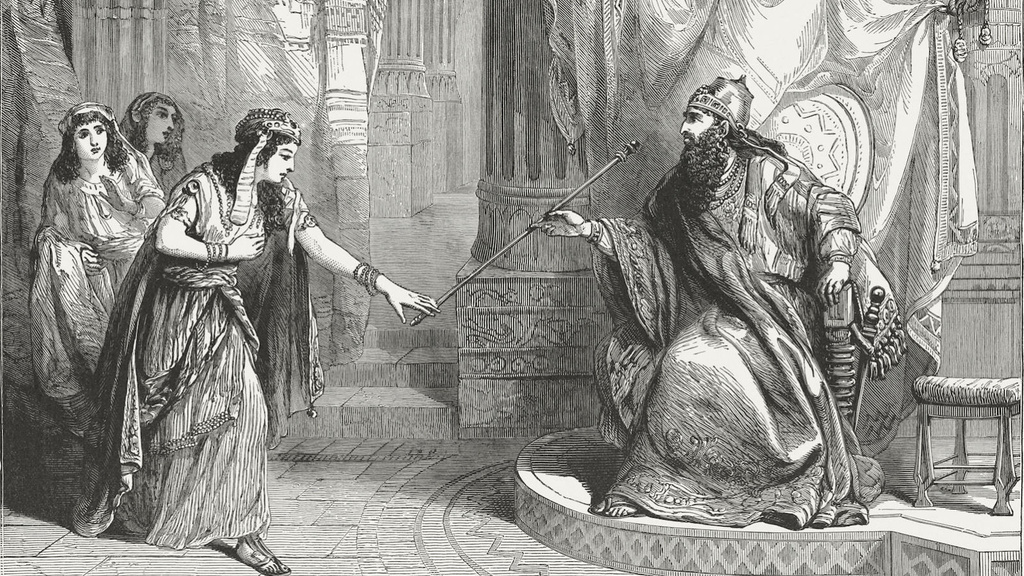
“No Weapon That Is Formed Against Thee Shall Prosper"
God governs through Providence. He works His will even when we cannot see or hear Him.

- Mark R. Rushdoony
It has puzzled commentators that the name of God is nowhere found in the book of Esther, which relates how an attempt to slaughter the Jews was first foiled and turned to their favor and the ruin of their enemies. God is very much in Esther, however, because He governed through Providence, as He does in our day. He works His will even when we cannot see or hear Him.
The story of Esther is not primarily about the salvation of God but of His government, particularly as it works through unbelievers. When evil seems to prevail and the people of God appear to be without recourse and facing destruction, God works His will. A Persian emperor pursuing his own self-interest was made to protect His people. There is no rod of Moses because God is manipulating the unrighteous. There is no miracle-working prophet because God did not witness to the emperor. It is an account of God bending the will and way of one heathen to thwart another and serve in the Divine plan.
God is very real in the Persian court, but invisible to them. Isaiah had, generations earlier, said, “No weapon that is formed against thee shall prosper” (54:17). We are on the Lord’s side, and we are the winners in time and eternity. In Washington, Moscow, and Beijing, God is at work. In courts and in academia God is at work. We may, with the martyrs ask, “How long, O Lord?” (Rev. 6:10; cf. Ps. 79:5; Ps. 89:46) because we desire to see God vindicated, but He is all-present and all powerful.
As James Russell Lowell wrote in “The Present Crisis,”
Truth forever on the scaffold, Wrong forever on the throne, −
Yet that scaffold sways the future, and, behind the dim unknown,
Standeth God within the shadow, keeping watch above His own.
Or, as Adoniram Judson said from a Burmese prison cell, “The future is as bright as the promises of God.” That is how he saw it by faith, and how we ought to as well.
Chalcedon’s work presupposes the advance and victory of the Kingdom of God and His Christ.

- Mark R. Rushdoony
Mark R. Rushdoony graduated from Los Angeles Baptist College (now The Master’s College) with a B.A. in history in 1975 and was ordained to the ministry in 1995.
He taught junior and senior high classes in history, Bible, civics and economics at a Christian school in Virginia for three years before joining the staff of Chalcedon in 1978. He was the Director of Chalcedon Christian School for 14 years while teaching full time. He also helped tutor all of his children through high school.
In 1998, he became the President of Chalcedon and Ross House Books, and, more recently another publishing arm, Storehouse Press. Chalcedon and its subsidiaries publish many titles plus CDs, mp3s, and an extensive online archive at www.chalcedon.edu. His biography of his father will be published later this year (2024).
He has written scores of articles for Chalcedon’s publications, both the Chalcedon Report and Faith for all of Life. He was a contributing author to The Great Christian Revolution (1991). He has spoken at numerous conferences and churches in the U.S. and abroad.
Mark Rushdoony has lived in Vallecito, California, since 1978. His wife, Darlene, and he have been married since 1976. His youngest son still resides with him. He has three married children and nine grandchildren.